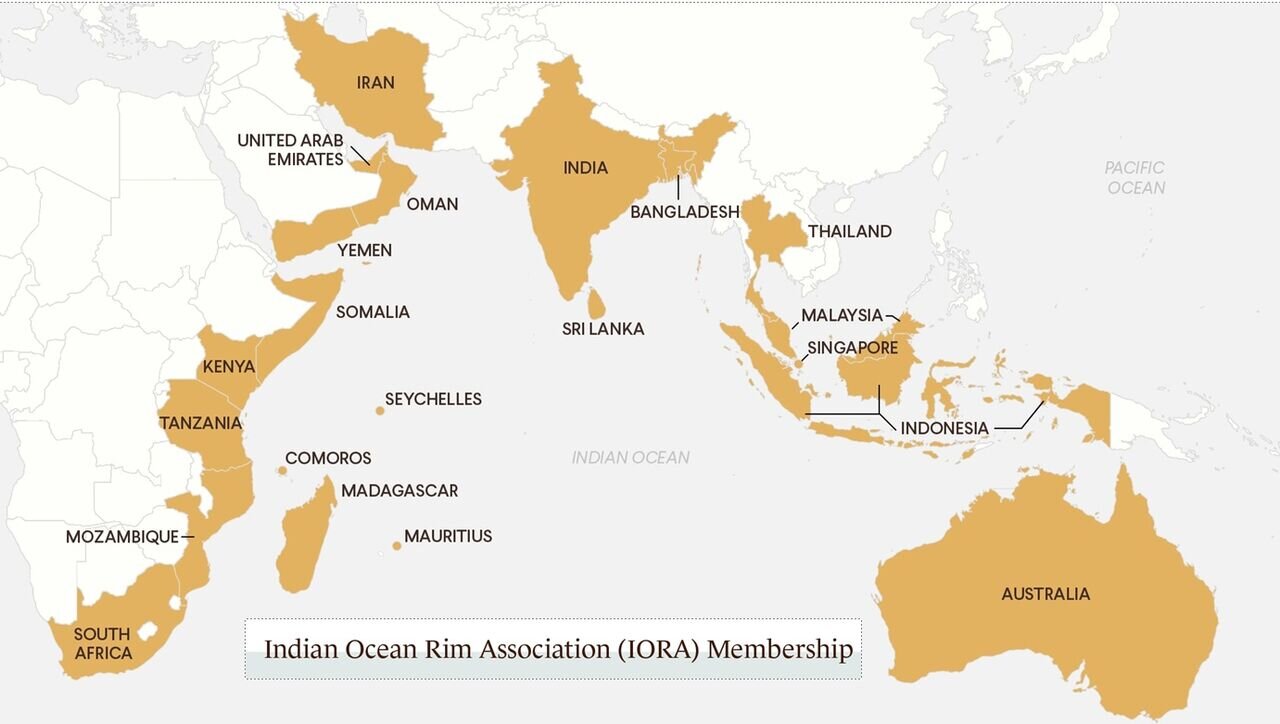Tehran hosting workshop on Indian Ocean marine environment

TEHRAN - The third phase of the workshop series on the effects of climate on the Indian Ocean marine environment kicked off here on Monday.
The Indian Ocean Rim Association Regional Centre for Science and Technology Transfer (IORA RCSTT), the Iranian Research Organization for Science and Technology (IROST), the Iranian National Institute for Oceanography and Atmospheric Sciences (INIOAS), and the Regional Education and Research Centre on Oceanography for West Asia are holding the workshop.
The Indian Ocean Rim Association is an inter-governmental organization that was established on March 7, 1997.
The effects of climate change on the environment of the Indian Ocean and the introduction of measures taken to reduce the effects of climate change are discussed during the three-day event, IRNA reported.
The aim of the workshop is to enhance the knowledge of Member States and share information on the impacts of climate change on the marine environment.
The specific objectives are to promote sharing knowledge and findings on the effects of climate change on various aspects of the marine environment and ecosystem.
It also aims to enhance the capacities and skills of IORA Member States in sustainable management and conservation of marine biodiversity.
Encouraging international research partnerships to invest in the conservation and restoration of blue carbon ecosystems as an important component for mitigating the effects of climate change, and increasing awareness and resilience of IORA Member States on climate change-driven disasters and damages are some other goals of the workshop.
The event seeks to design an action plan to address the impacts of climate change on the marine environment and ecosystems, as well as its implications on food security.
Motivating researchers to assess and validate their hypothesis on climate change, leading to the promotion of numerical climate prediction, and introducing Marine and Coastal Adaptation and Mitigation Measures for Climate Change are other objectives of the event.
The Indian Ocean, as the third-largest body of water in the world, plays an important role in the economy, ecosystem, and weather from local to global scales.
Many properties of the Indian Ocean, can be fundamentally influenced by climate change. Climate change is rapidly impacting the weather, ecosystems, and life of more than two billion people.
The impacts of climate change are putting increasing pressure on both marine and terrestrial environments, through more extreme weather conditions that also increase the likelihood of natural disasters.
Climate change is predicted to result in an increase in global temperatures, sea level rise, ocean acidification, more intense tropical cyclones, and an increase in the frequency, intensity, or duration of extreme weather events.
It is predicted that climate change-driven disturbance will have a negative effect on water supply; food security; health, industry, settlement, and society, especially for those located in coastal areas and river flood plains.
In addition, climate change would also impact natural systems and resources, infrastructure, and labor productivity which may lead to reduced economic growth and increasing poverty and inequality.
Therefore, the investigation of climate change effects from different points of view, from marine environment/biodiversity to weather variation, is significant.
MG
